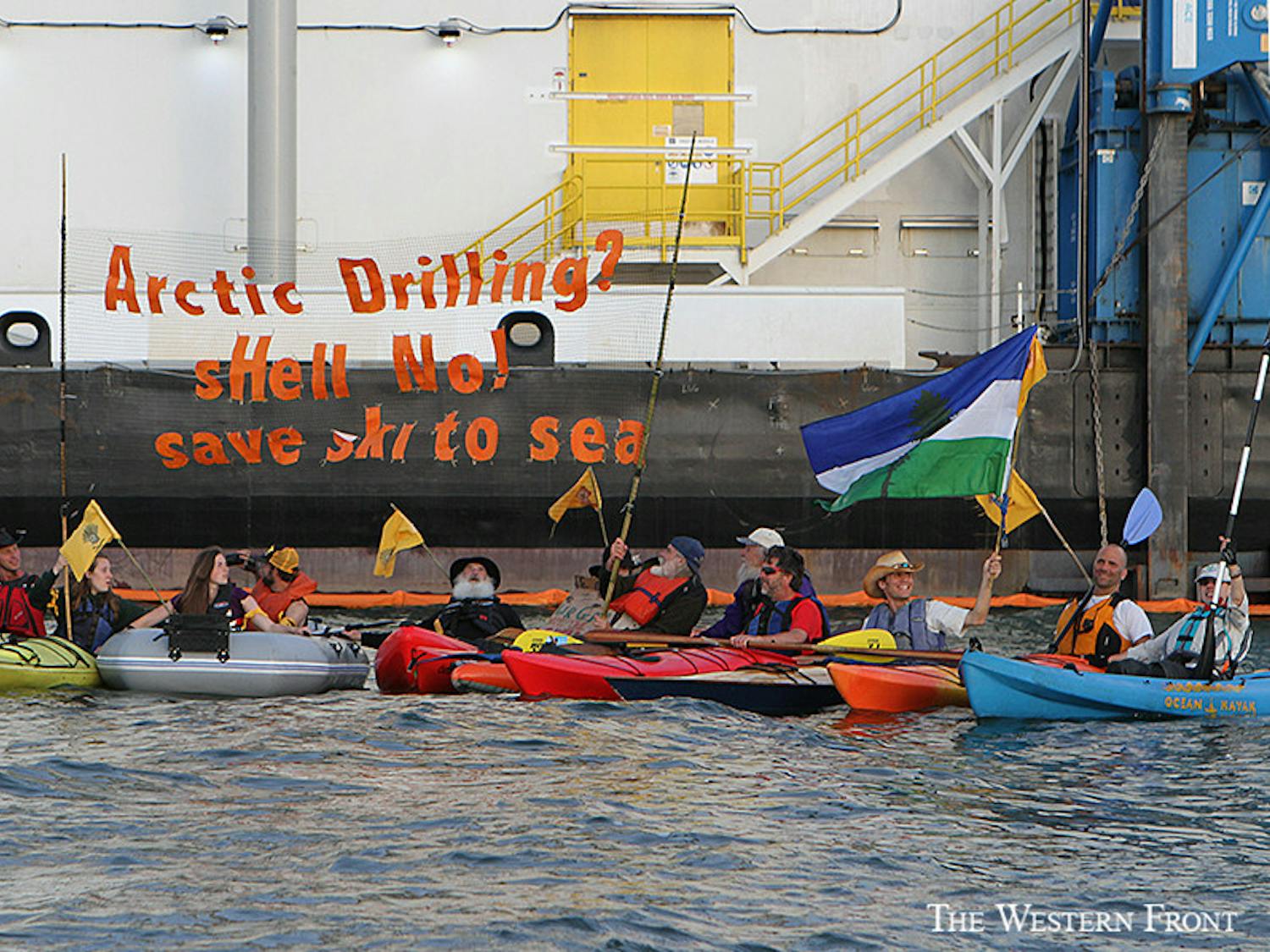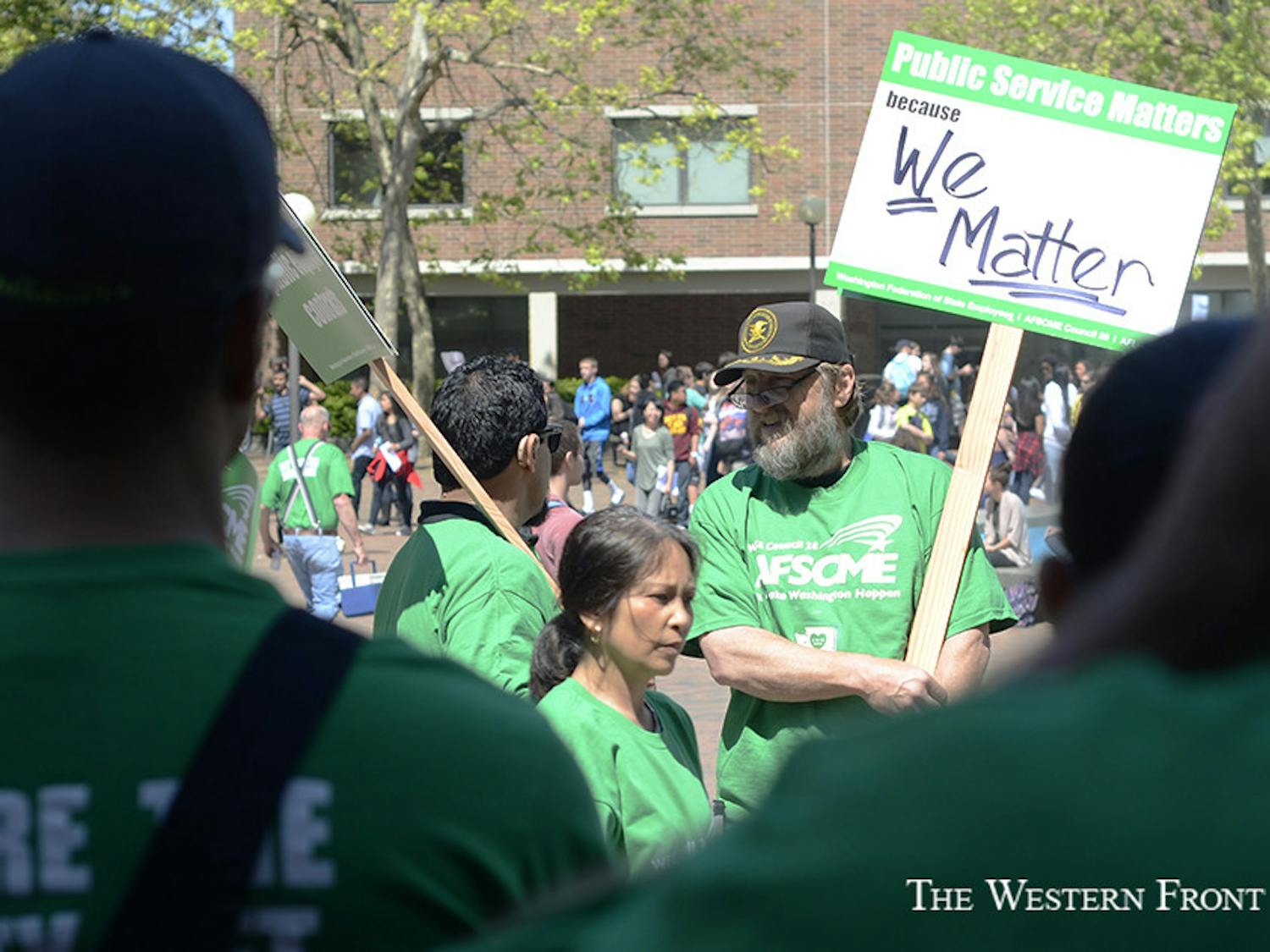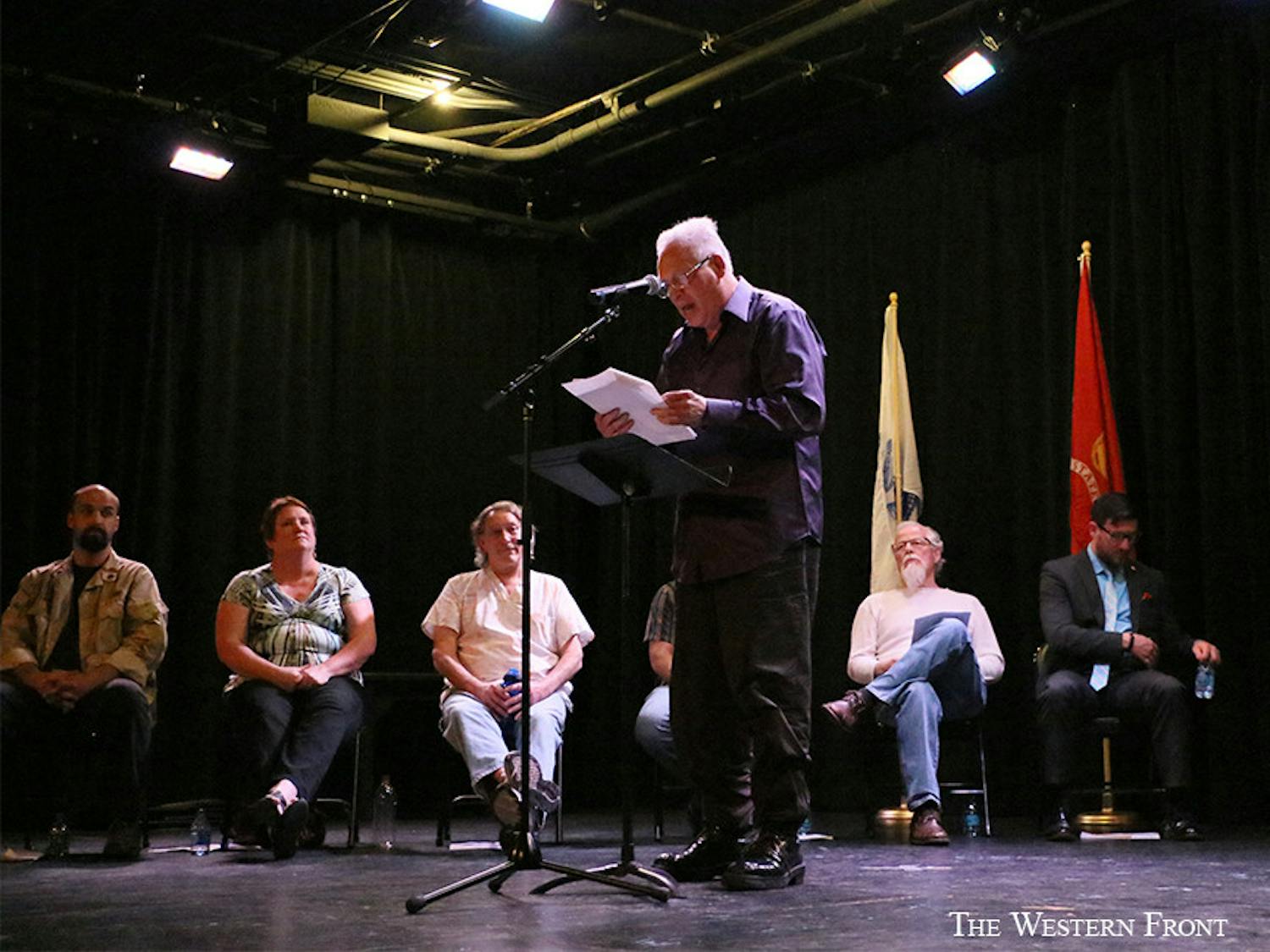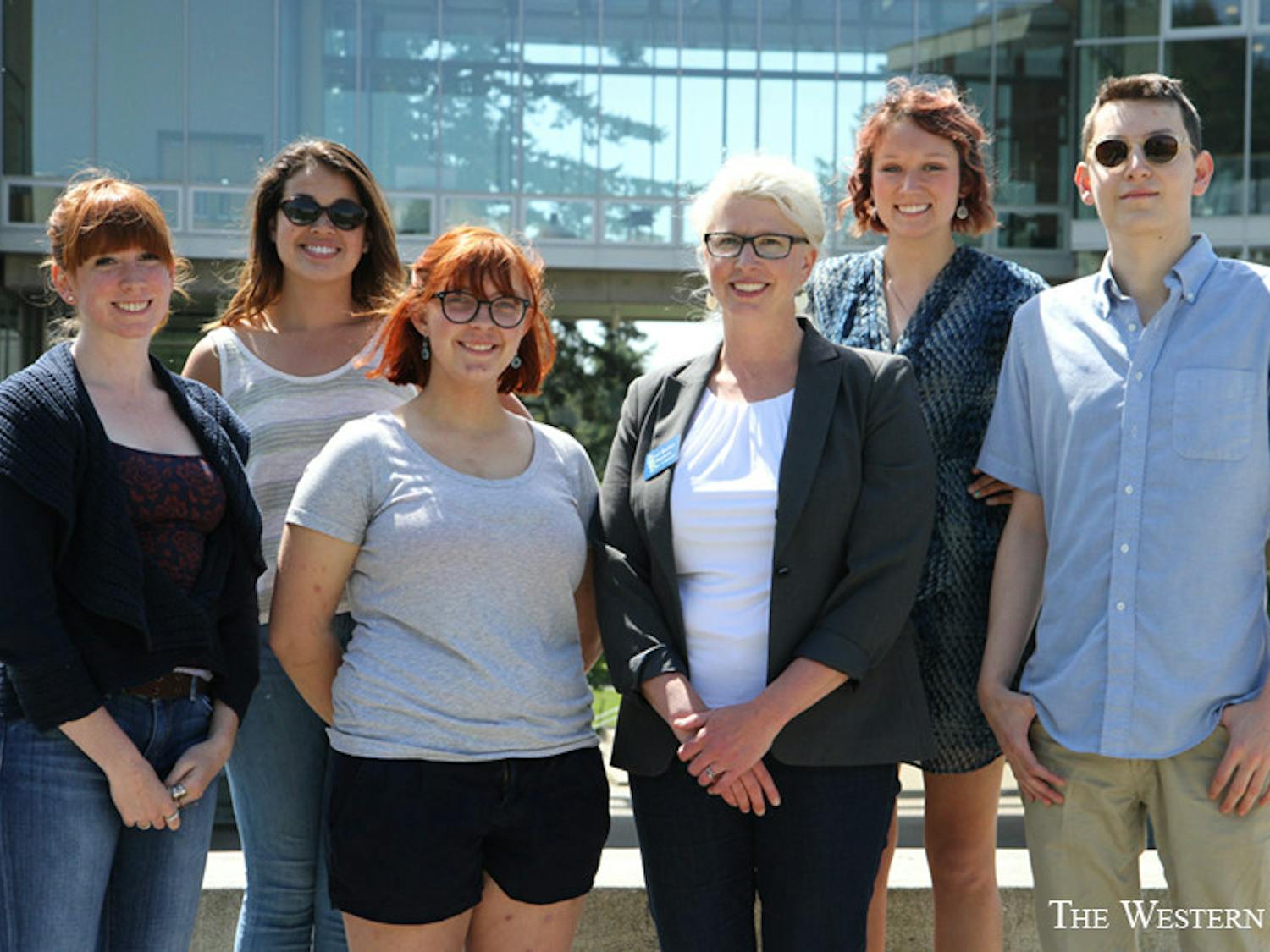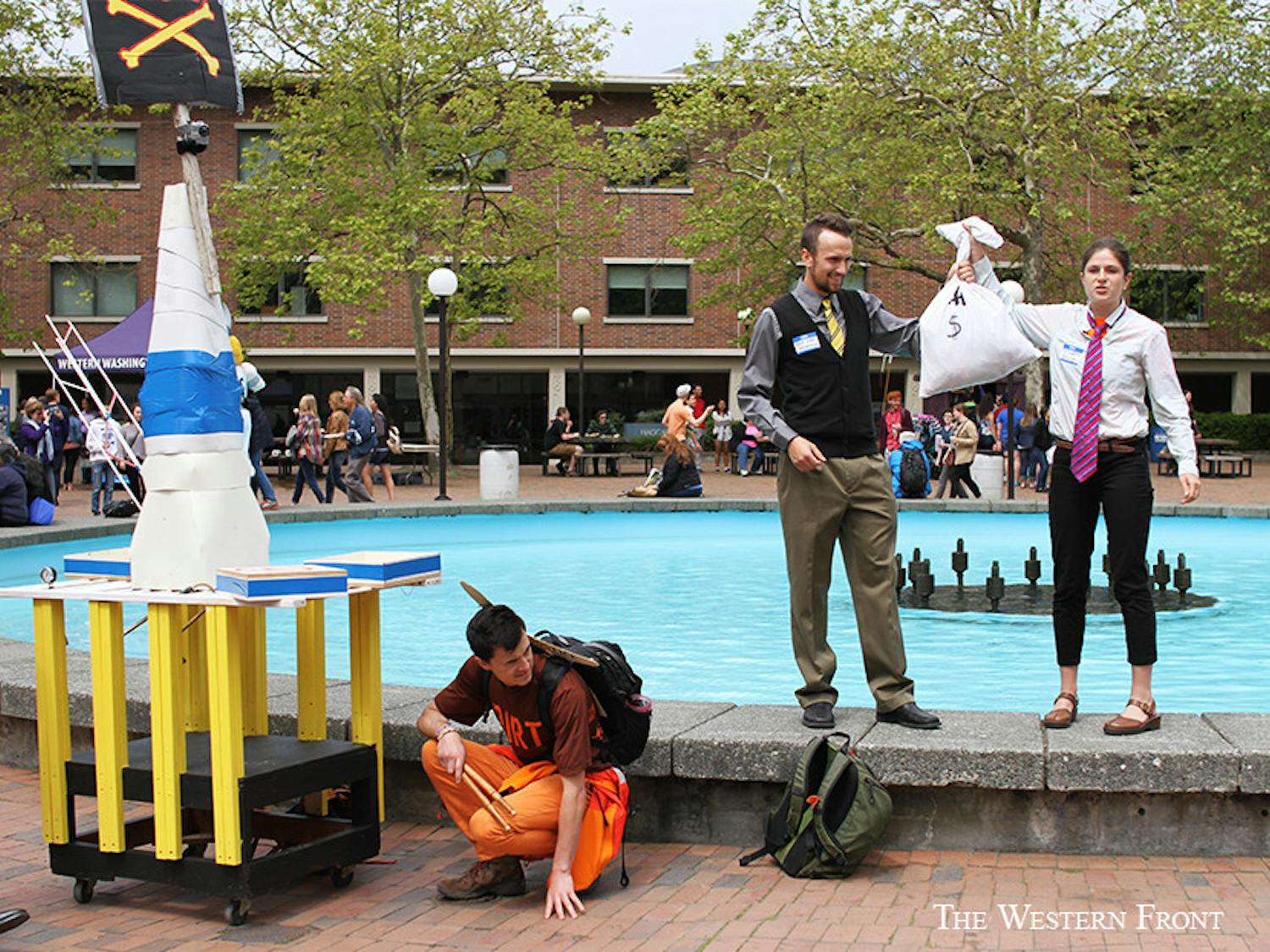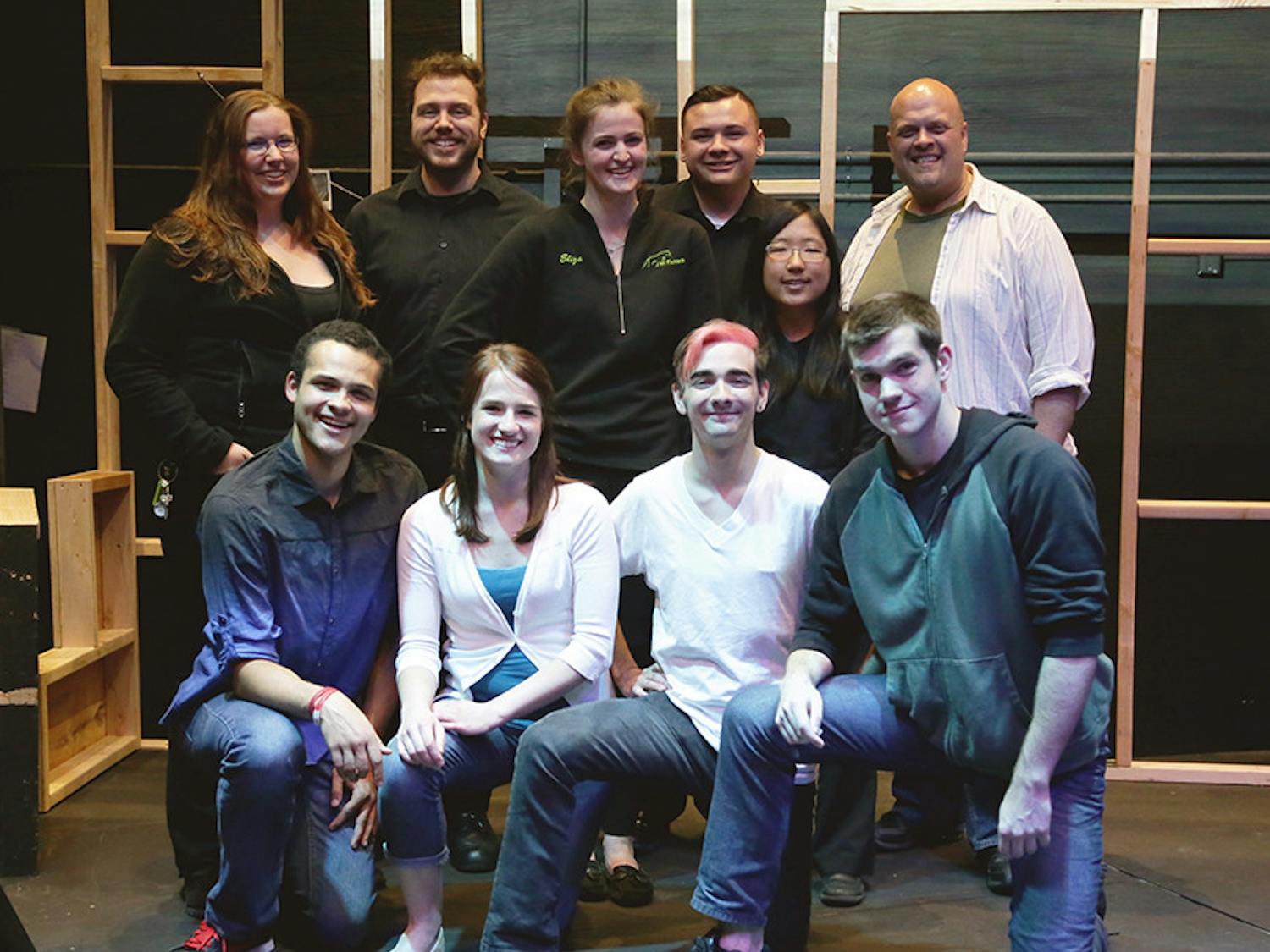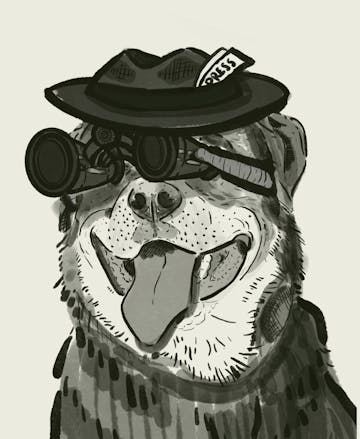News
By The Front
|
May 18
“Exceptional work requires exceptional people.” That is the adversary statement Toby Grubb, senior designer at Instrument, gave to the classroom filled of Western Washington University students he spoke to during Design Days on Thursday, May 14.
Design Days is an annual event that takes place during Scholars Week on Western’s campus and is a student run event that explores the impact of design on the global market.
“The week consists of student presentations about various topics in design. The subjects ranged this year from Designing for Recreational Cannabis an Emerging Market to Designing For Film and UX and Interaction Design to Designing Your Life,” Kacey Morrow, a member of the design faculty, said.
These campus wide events that take the form of student gallery showings, presentations, guest speakers and a collaborative event with Iron Street Printing in Red Square spread awareness and creativity for not only the design major, but also the role design takes in our daily lives.
As the week draws to a close each year, the students choose to invite a keynote speaker, and this year’s selection was Toby Grubb, of the digital creative agency, Instrument, located out of Portland, Oregon. Grubb is currently the creative director at Instrument that handles major clients such as Google, Nike, Stumptown Coffee Roasters, Red Bull, Amazon, YouTube and Patagonia, just to name a few.
Grubb got his start working for the popular snowboarding brand, Burton, acquiring over eight years of design experience with the company. Grubb started his presentation with a video of him cascading, head over heels down a mountain in attempts to follow the line of one of the professional snowboarders he was working with.
“It was a moment of elation, to know that I had mastered so many things, ranging from InDesign to Typography, only to fall in front of a bunch of pro snowboarders,” Grubb joked. “The industry is supposed to be fun […] design is supposed to be fun.”
The high level of enjoyment and tenacity is obvious as Grubb described to students his career path and went in depth about his current projects, ranging from a motorcycle he hand built using LED technology and old Apple computers to creating a news app that personalizes the world’s most prominent stories to your own personal preferences to working with Levis for a personalized campaign.
Grubb draws inspiration and guidance from such industry titans such as Warren Buffet. He even encouraged student interaction after briefly describing Warren Buffet’s “Two List System,” which is similar to a bucket list in terms of prioritizing goals and using personal fears as a strength.
Grubb asked all of the students to write one of their own personal bucket list items on a notecard, a goal that they wanted to achieve now that graduation is approaching. These goals ranged from places the students wanted to go to social boundaries they wanted to break. On the back of the card, Grubb asked the students to write the top four steps they needed to take in order to achieve this goal.
Throughout the presentation, Grubb asked the students to cross off these four steps, until only the most important one remained as a stepping-stone and an obstruction to them achieving their goal.
“Expose yourself to things that scare the shit out of you, and then figure out why those things scare you,” Grubb said.
Grubb’s advice to the students of Western is just as adventurous, driven and innovative as Grubb’s own work. He placed heavy importance on self-realization and knowing both your strengths and weaknesses equally, and applying them both to your advantage.
This self-realization can come before graduation, but in every day classes as well, he said.
“If you want to succeed, assignments are not guidelines,” Grubb said. “Do something rad.”
Grubb concluded his presentation with the fact that the most sought after jobs in 2015 did not exist in 2005. His last piece of advice for students was to break the mold, immerse themselves in everything they could and to collaborate with as many people and places as possible.
“Get out, go left, seek the exceptional” Grubb said. “College is not the time to be told what to do.”


